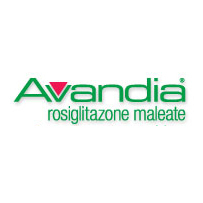Avandia drug under scrutiny by FDA
by
Heather Mayer, DOTmed News Reporter | July 12, 2010

The drug's safety
has been debated
for years.
The decade-long debate over the safety of the diabetic drug Avandia continues, after the U.S. Food and Drug Administration ripped apart a study that deemed the drug safe.
The FDA's Dr. Thomas Marciniak, of the division of cardiovascular and renal products, wrote in his analysis that the study - called RECORD - "was inadequately designed and conducted to provide any reassurance about the [cardiovascular] safety of rosiglitazone." Rosiglitazone is the generic drug name for Avandia. He also called the study "inappropriate and biased."
"We recognize there are differences of opinion, even within the FDA, on the safety of Avandia, and that is why we have asked the advisory committee to weigh in as we decide what to do with this drug," FDA spokeswoman Karen Riley told DOTmed News.
Findings from previous studies of the drug have shown that it does not increase the risk of heart attack, stroke and heart failure, while others show the opposite. On Tuesday, the FDA will debate the future of Avandia, taking into consideration RECORD (Rosiglitazone Evaluated for Cardiac Outcome and Regulation of Glycemia in Diabetes), observational data, health claims data and a meta-analysis of controlled clinical trials, according to the FDA.
One of the questions proposed to the FDA advisory committee members is whether he or she believes, based on the available data, that the drug increases the risk of ischemic cardiovascular events. The advisory committee only gives its opinion; it does not decide the fate of the drug.
After the two-day panel discussions, the FDA will try to decide as quickly as possible what to do with the diabetic drug, said Riley.
Avandia, approved in 1999, is used to control blood glucose levels in diabetic patients. Sales peaked at more than $3 billion in 2006, according to media reports. But the following year, Dr. Steven Nissen of the Cleveland Clinic published a report in the New England Journal of Medicine, which found that rosiglitazone was associated with "a significant increase in the risk of myocardial infarction and with an increase in the risk of death from cardiovascular causes," according to the report. He also wrote, "Patients and providers should consider the potential for serious adverse cardiovascular effects of treatment with rosiglitazone."
Nissen also reported that limitations in his review included lack of access to original source data, which would have allowed for time-to-event analysis.
This NEJM review is what sparked the recent debate, said Bernadette King, director of product communication for GlaxoSmithKline, the drug's manufacturer.
But the company stands by the RECORD study, which King said, met its hypothesis, or end point. She also pointed out that the findings of the five-and-a-half-year long study, which involved nearly 5,000 patients, showed that the drug was not related to an increase in cardiovascular events other than congestive heart failure, which is a documented side effect of these types of drugs.
King told DOTmed News that since the 2007 NEJM report there have been six major clinical trials that did not suggest an overall increased risk for heart attack, stroke or death.
"We're hopeful that there will be reasoned, measured, rational scientific discussion around the data," she said. "...Let the science speak for itself."
The pharmaceutical company said it's hard to speculate what will happen if the FDA kicks the drug off the market.
"We'll continue to work with the FDA and defer to them and what's in the interest of patients," she said. "We remain confident in the safety and efficacy of this drug."
